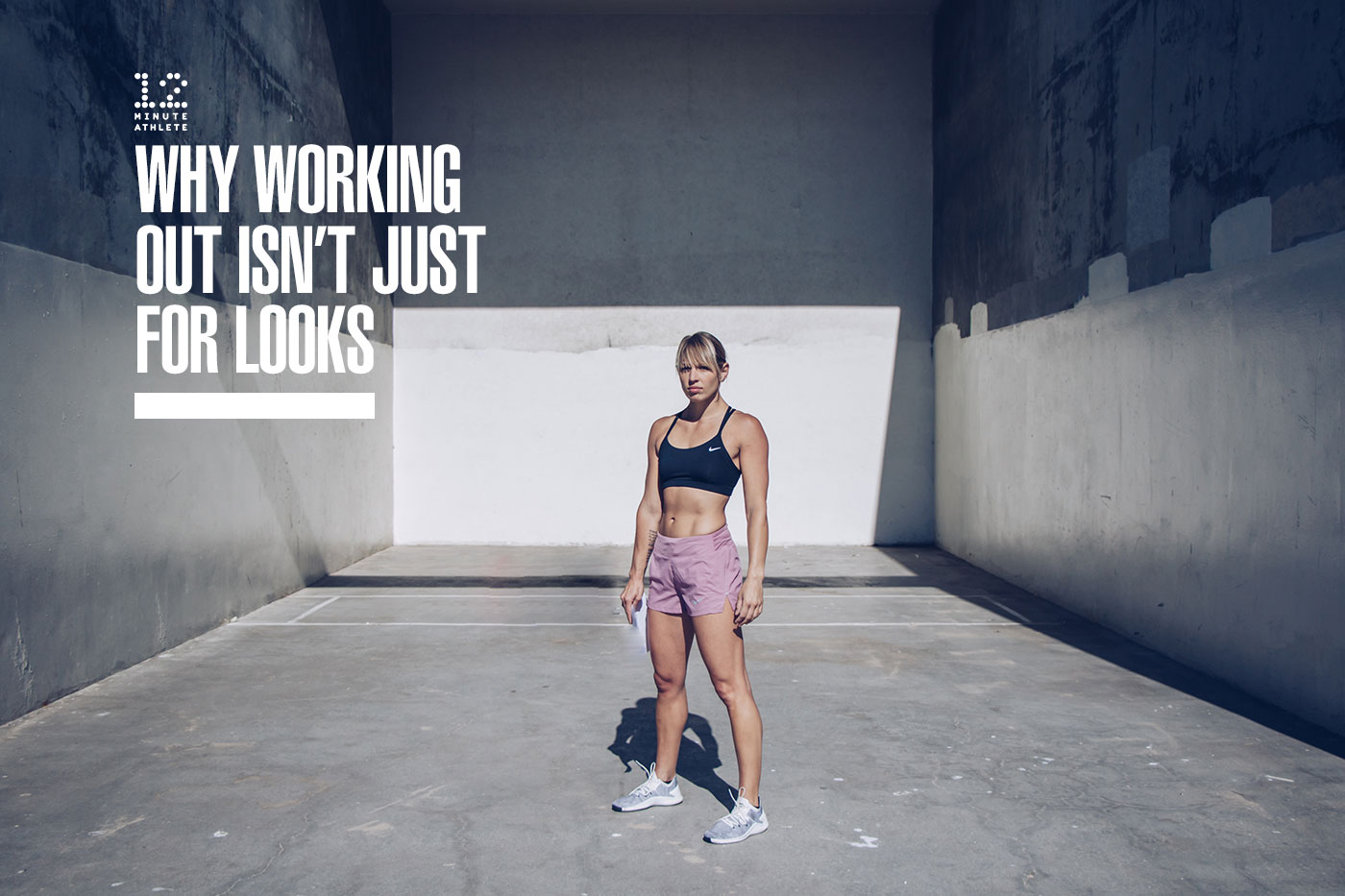
Like so many people, when I first started my fitness journey, I worked out solely because I wanted to lose weight, get leaner, and feel better in my body.
And while there’s certainly nothing wrong with wanting to feel confident about how you look, in my experience working out for looks alone has several different issues with it:
- Every time I would miss a workout, “cheat” on my diet, or eat dessert, I felt like a failure.
- It wasn’t very easy to track my progress, since stepping on the scale alone isn’t a reliable measure of weight loss progress.
- Working out to “look good” didn’t motivate me in the long-term, so I constantly struggled with consistency.
It wasn’t until I found other intrinsic reasons to work out that had nothing to do with my appearance that I was finally able to develop a lifelong fitness habit and become the become the athlete I had never before believed I could be.
Here are some really good reasons to work out (that have nothing to do with your appearance):
Exercise Improves Your Mood
Next time you’re feeling depressed, anxious, frustrated, or down for any reason, try and get in a workout and see how you feel.
If you’re anything like me, 99% of the time when you go into a workout in a bad mood, you’ll come out of it in a better one.
This isn’t a fluke: when you exercise, your brain releases chemicals called endorphins. These interact with the receptors in your brain, resulting in a positive boost in your mood and help you feel less stressed and anxious overall.
Personally, exercise plays a huge role in how I’m able to regulate my mood on a daily basis. The more consistent I am with my workouts, the better my mood is throughout the week.
Working Out Teaches You Long-Term Goal Setting
If you’re like most people, when you first started your fitness journey you expected to make progress, and fast. Whether your goal was to lose weight, to build strength, or to learn something new, typical beginners expect results within a couple of weeks or months at the most.
Yet if you’ve stuck with fitness long enough to create (and complete) some long-term goals, you probably know that the more challenging the goal is, the more work—and time—you have to put into it.
And if you expect to make real improvements, you will most likely be doing the same things day in and day out for a long time.
For example, if you’re working on your freestanding handstand you can expect to spend a lot of time holding handstands at the wall. Until you build up some decent endurance, there’s no real point in mixing things up. You need to put in your time at the wall before you can move on to anything new and more exciting.
If you’re learning any form of martial arts, you can expect to do the same drills over until they’re so engrained in your head you could do them with your eyes closed (or, with someone punching you in the face).
If you want to be able to do the splits, you’ll need to practice the same few stretches most days a week for a really long time.
…you get the idea. The more challenging the goal, the more time and hard work you’re going to have to put into it.
When you start to understand what it takes to achieve your fitness goals, you begin to understand goal setting in other areas of your life, too. Whether you have long-term career, lifestyle, or relationship goals, the discipline and persistence you’ve taught yourself with fitness-related goals often translates to other long-term life goals, as well.
Getting Fit Builds the Confidence to Become the Best Version of Yourself
Working out isn’t about punishing yourself for eating “bad” food or taking an extra rest day here and there. Fitness is not a tool for punishment, and if you treat it that way, you’re unnecessarily tearing yourself down.
Getting fit is all about building yourself up, so you can become the best version of yourself. As you get stronger, fitter, and increase your athletic skillset, you’ll develop a better relationship with your body and mind—and your confidence levels will skyrocket as a result.
Because there’s no better confidence booster than seeing what you’re actually capable of.
And when you realize that, you can truly unlock your potential and become the most badass possible version of yourself.



I totally agree with this. I think working out on a regular basis is the most important point here. And you have to do it for yourself first, otherwise it’s a waste of time.
“There’s no better confidence booster than seeing what you’re actually capable of.” Love it, Krista! A great perspective, as usual. Thanks for consistently providing great content.
I’m going to have my students, college level fitness course, read this article. It’s exactly what I express to them…we set goals, long and short.
Great article!